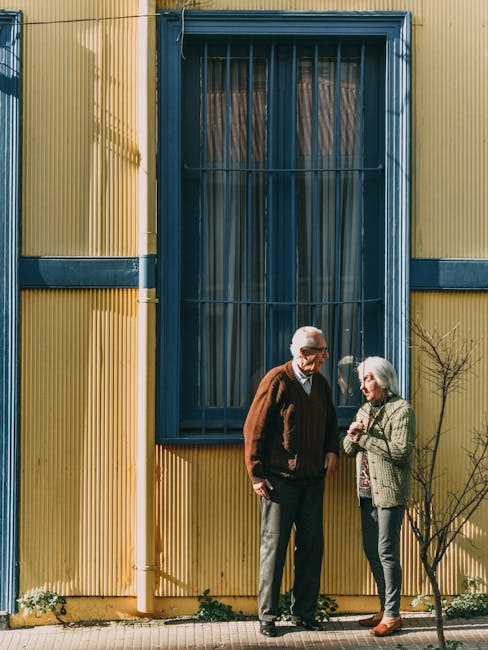How To Be A Positive Influence In Your Friend Group?
Being a positive influence in your friend group starts with your attitude and actions. It’s about lifting others up, spreading good vibes, and creating an environment where everyone feels valued. Why should you care? Because the energy you bring to your friendships can shape not only your relationships but also your own happiness and growth. Stick around, and we’ll explore how you can become that beacon of positivity your friends look up to.
Key Takeaways
- Your attitude and actions can inspire your friends in meaningful ways.
- Positivity fosters stronger, healthier friendships.
- Being a positive influence benefits both you and your friend group.
Understanding the Importance of Being a Positive Influence
The impact of social influence on friend groups
Friend groups are like ecosystems—each person contributes to the overall vibe. Your behavior, whether uplifting or negative, can ripple through the group. Studies show that social influence plays a huge role in shaping attitudes and behaviors. If you’re the one spreading optimism, your friends are more likely to follow suit.
Want to dive deeper into how social influence works? Check out this insightful guide on the power of peers.
How positivity shapes behaviors and attitudes
Positivity is contagious. When you approach situations with a can-do attitude, it encourages others to do the same. Think of it like lighting a candle—your flame can ignite others without dimming your own light.
Benefits of fostering a supportive and encouraging environment
A supportive environment strengthens bonds and builds trust. When friends feel safe and encouraged, they’re more likely to open up, share their dreams, and support each other. This creates a cycle of mutual growth and happiness.

Building Strong and Supportive Relationships
The role of active listening and empathy
Being a good listener is like giving your friends a warm hug without using your arms. When you truly listen, you show that you care. Empathy takes it a step further by helping you understand their feelings.
Encouraging and uplifting your friends
Sometimes, all it takes is a kind word or a simple “You’ve got this!” to make someone’s day. Be the cheerleader your friends didn’t know they needed.
Celebrating achievements and milestones together
Don’t just show up for the hard times—celebrate the good times too! Whether it’s a promotion, a personal victory, or even a small win, make it a big deal.

Making Wise Choices in Friendships
Surrounding yourself with uplifting and inspiring individuals
You are the company you keep. Surround yourself with people who inspire you to be better, and you’ll naturally become a better influence on others.
For tips on building meaningful connections, check out this article.
Recognizing and addressing toxic behaviors
Not all friendships are healthy. If someone’s behavior is consistently draining or harmful, it’s okay to set boundaries. Addressing toxicity isn’t easy, but it’s necessary for your well-being.
Prioritizing quality over quantity in friendships
It’s better to have a few close friends who truly care about you than a large group of acquaintances. Focus on deep, meaningful relationships.

Leading by Example
Demonstrating kindness and respect
Kindness costs nothing but means everything. Treat your friends with respect, and they’ll likely mirror that behavior.
Practicing honesty and integrity
Be truthful, even when it’s hard. Honesty builds trust, and trust is the foundation of any strong friendship.
Being consistent in your actions and words
Consistency shows reliability. When your friends know they can count on you, it strengthens the bond you share.

Encouraging Growth and Development
Supporting your friends’ goals and aspirations
Be their biggest fan. Whether it’s a career goal, a fitness journey, or a creative project, cheer them on every step of the way.
Promoting healthy habits and behaviors
Encourage your friends to take care of themselves, both physically and mentally. Share tips on positive self-talk or suggest activities that promote well-being.
Inspiring others to be their best selves
Lead by example. When you strive to be your best self, you inspire others to do the same.

Navigating Challenges in Friend Groups
Resolving conflicts with positivity and understanding
Disagreements are inevitable, but how you handle them matters. Approach conflicts with an open mind and a willingness to understand the other person’s perspective.
Maintaining balance and fairness in group dynamics
Avoid favoritism and make an effort to include everyone. A balanced group dynamic keeps the peace and strengthens relationships.
Strengthening bonds during difficult times
Tough times can either break or make a friendship. Be there for your friends when they need you most, and your bond will grow stronger.

Understanding Social Dynamics in Friend Groups
The role of shared interests and values
Common interests and values are often the glue that holds friend groups together. They create a sense of belonging and mutual understanding.
Insights into the formation of friend groups
Ever wonder why certain people click? Friend groups often form based on shared experiences, personalities, or even subconscious factors. Learn more about this fascinating topic here.
How attractiveness and other factors influence group dynamics
While it’s not the most important factor, physical and social attractiveness can play a role in group dynamics. However, true friendships go beyond surface-level traits.
Creating a Positive Group Culture
Encouraging open communication and trust
A group that communicates openly is a group that thrives. Foster an environment where everyone feels heard and valued.
Establishing shared goals and values
Whether it’s planning a trip or supporting a cause, shared goals bring people closer together.
Promoting inclusivity and mutual respect
Celebrate differences and make everyone feel welcome. Inclusivity strengthens the group and enriches your experiences.

The Long-Term Impact of Positive Influence
Strengthening lifelong friendships
The effort you put into being a positive influence pays off in the form of lifelong friendships.
Building a legacy of positivity within your group
Your actions can set the tone for your friend group, creating a culture of kindness and support.
Inspiring others to spread positivity beyond the group
Positivity is like a ripple in a pond—it spreads far beyond its starting point. Be the spark that inspires others to make the world a better place.
Reflecting on Your Role in the Friend Group
Assessing your contributions to the group dynamic
Take a moment to reflect on how you impact your friends. Are you lifting them up or dragging them down?
Identifying areas for personal growth
Nobody’s perfect, and that’s okay. Identify areas where you can improve and work on them.
Committing to continuous improvement as a positive influence
Being a positive influence is a journey, not a destination. Keep striving to be the best friend you can be.
Being a positive influence in your friend group isn’t just about making others feel good—it’s about creating a ripple effect of kindness, support, and growth. So, what’s your next step? Start small, stay consistent, and watch the magic unfold.
For more tips on fostering meaningful relationships, check out this guide.
FAQ: How to Be a Positive Influence in Your Friend Group? Let’s Explore Together!
Why is being a positive influence in your friend group important?
Being a positive influence helps foster a supportive and uplifting environment, strengthening friendships and promoting personal growth for everyone involved. It also sets a standard for kindness and respect within the group.
What are some practical ways to be a positive influence?
You can start by actively listening, offering encouragement, and being dependable. Small gestures like celebrating your friends’ successes and showing empathy during tough times can make a big difference.
How can I encourage open communication within my friend group?
Create a safe space by being approachable and non-judgmental. Encourage honesty and actively listen without interrupting. Leading by example can inspire others to communicate openly as well.
What should I do if negativity arises in the group?
Address negativity calmly and constructively. Offer solutions or redirect the conversation to a more positive topic. Avoid escalating conflicts and focus on maintaining harmony within the group.
How can I inspire my friends to adopt healthier habits?
Lead by example—whether it’s exercising, eating well, or practicing mindfulness. Share your experiences and invite your friends to join you in activities that promote well-being, without being pushy.
What role does gratitude play in being a positive influence?
Expressing gratitude strengthens bonds and fosters a sense of appreciation within the group. A simple ‘thank you’ or acknowledging your friends’ efforts can go a long way in creating a positive atmosphere.
How can I balance being a positive influence without overstepping boundaries?
Respect your friends’ autonomy and preferences. Offer support and guidance when asked, but avoid imposing your opinions or trying to ‘fix’ them. Healthy boundaries are key to maintaining mutual respect.
What if I feel like my efforts to be positive are not reciprocated?
Focus on your intentions rather than expecting immediate reciprocation. Positivity often has a ripple effect, even if it takes time. If the group dynamic remains unhealthy, consider discussing your feelings or reevaluating the relationship.
Can humor be a part of being a positive influence?
Absolutely! Sharing lighthearted moments and laughter can uplift the group and ease tension. Just ensure your humor is inclusive and doesn’t come at anyone’s expense.
How can I maintain my own positivity while influencing others?
Take care of your mental and emotional well-being by practicing self-care, setting boundaries, and surrounding yourself with uplifting people. A positive mindset starts with self-awareness and self-compassion.



